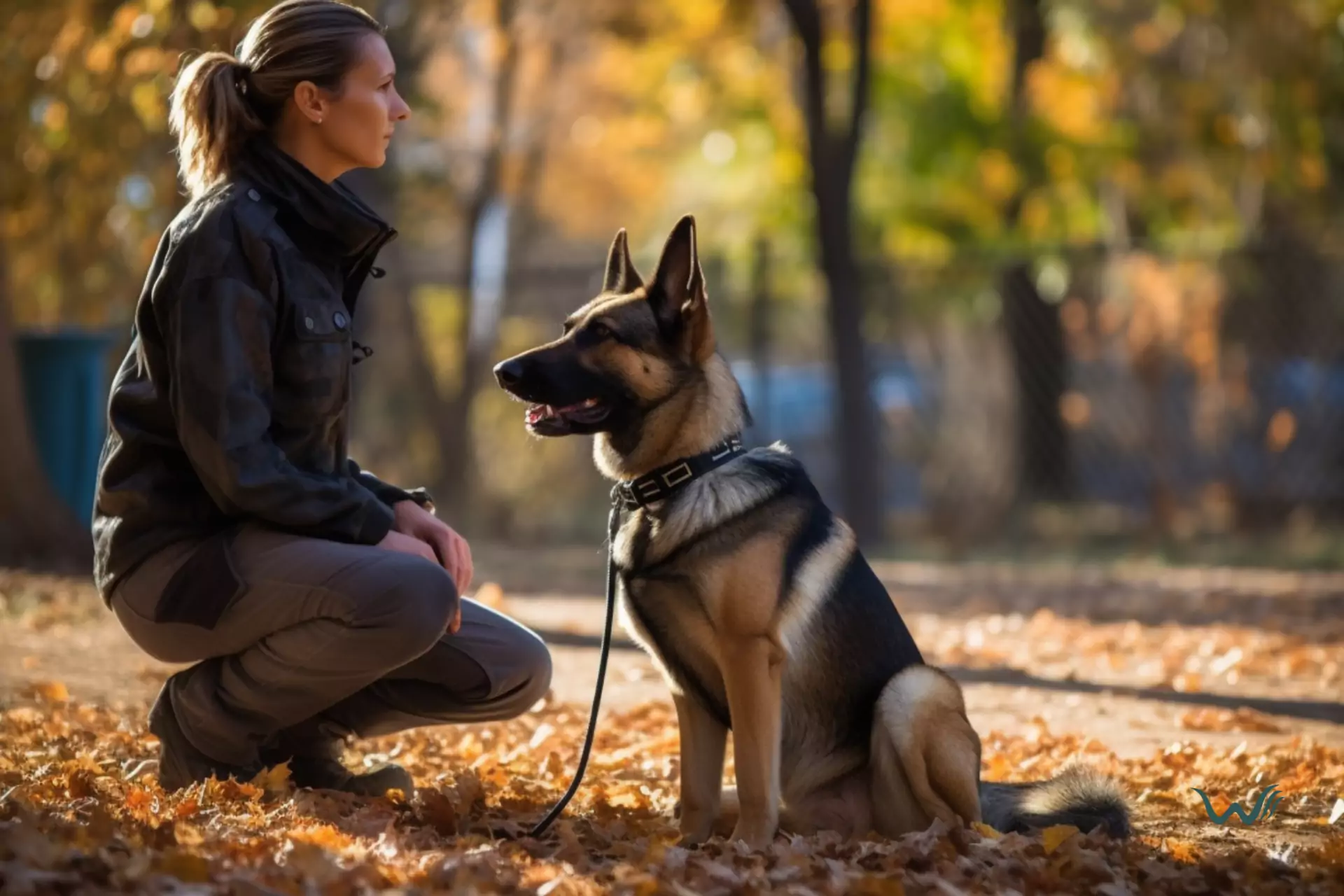

Quiet! Good Dog! Teaching Your Dog To Stop Barking
by Tayyaba Amir
Last updated: April 18, 2024
Verified and Approved by:
Angela Morris,
MSW, LCSW
Fact Checked

Are you tired of constantly hearing your furry friend bark at every little noise or passerby? Do you find yourself wishing for some peace and quiet, but unsure of how to effectively teach your dog to stop barking? Well, fear not, because with the right techniques and a little bit of patience, you can train your dog to be a well-behaved, quiet companion. In this article, we will explore the root causes of barking behavior, discuss positive reinforcement training techniques, and provide tips on how to ensure your dog gets enough exercise and mental stimulation to curb excessive barking.
By understanding the reasons behind your dog’s barking and implementing positive reinforcement training methods, you can effectively teach your dog to be quiet on command. With consistency and dedication, you can create a calm and peaceful environment for both you and your beloved pet. So, grab a treat, put on your training hat, and get ready to embark on a journey towards a quieter, happier relationship with your furry friend.
Key Takeaways
- Identifying the root cause of barking behavior is essential in addressing it effectively
- Implementing positive reinforcement training techniques can help in teaching your dog to stop barking
- Providing sufficient exercise and mental stimulation can reduce excessive barking
- Seeking professional help from a dog trainer or behaviorist may be necessary in some cases
Understanding the Root Cause of Barking Behavior
Before you can effectively teach your dog to stop barking, it’s important to understand the root cause of their barking behavior. Dogs bark for various reasons, such as seeking attention, expressing fear or anxiety, alerting to danger, or simply out of boredom. By identifying the trigger behind your dog’s barking, you can tailor your training approach to address the specific cause and help your furry friend learn more appropriate ways to communicate.
Take the time to observe your dog’s body language and the context in which they bark. Are they barking excessively when left alone, when encountering strangers, or when hearing loud noises? Understanding the circumstances surrounding your dog’s barking can provide valuable insights into their emotional state and what they may be trying to communicate. By empathizing with your dog and addressing the underlying cause of their barking behavior, you can build a stronger bond and create a harmonious environment for both of you.
Implementing Positive Reinforcement Training Techniques
When using positive reinforcement techniques, it’s important to reward desired behaviors consistently to effectively train your furry friend. Dogs thrive on positive reinforcement and will quickly learn that certain actions lead to pleasurable outcomes. For instance, when your dog stops barking on command, immediately reward them with a treat or praise. This will reinforce the behavior and increase the likelihood of your dog obeying the command in the future.
Consistency is key when implementing positive reinforcement training techniques. Make sure everyone in your household is on the same page and follows the same reward system. It’s important to be patient and persistent, as training takes time and effort. Remember, your dog wants to please you, so stay positive and encouraging throughout the training process. By consistently rewarding good behavior, you’ll see progress in teaching your dog to stop barking.
Providing Sufficient Exercise and Mental Stimulation
Ensure your furry friend stays happy and calm by giving them plenty of exercise and mental stimulation. Keeping your dog active and engaged is key to preventing excessive barking.
Here are three ways to provide sufficient exercise and mental stimulation for your beloved pet:
- Take your dog for daily walks or runs to help them burn off excess energy and stay physically fit.
- Engage in interactive play sessions with toys like puzzle feeders or balls to stimulate your dog’s mind and keep them entertained.
- Consider enrolling your dog in agility classes or training sessions to challenge their mental abilities and provide a fun outlet for their energy.
Seeking Professional Help if Needed
If your efforts to address the barking behavior do not yield positive results, don’t hesitate to reach out to a professional trainer for guidance and support. Sometimes, despite our best intentions and efforts, our furry companions may need a little extra help to overcome certain behaviors.
A professional trainer can assess the situation, provide tailored training techniques, and offer valuable insights to help you and your dog communicate better and resolve the barking issue. Remember, seeking professional help is not a sign of failure but a proactive step towards creating a harmonious relationship with your dog.
Trainers have the expertise and experience to identify the root cause of the barking behavior and develop a personalized plan to address it effectively. By working together with a trainer, you can gain valuable knowledge and skills that will not only help your dog stop barking but also strengthen the bond between you two.
Consistency and Patience in the Training Process
Consistency and patience are key in the training process for your canine companion. Remember, your dog is learning new behaviors and habits, so it’s important to remain consistent in your training methods and expectations. If you switch things up too often or give in to their barking sporadically, your dog will become confused and may not respond as effectively. Stay committed to the training process and be patient with your furry friend as they learn to control their barking.
It’s essential to understand that training takes time and effort, so don’t get discouraged if progress is slow. Every dog is different, and some may pick up on the training quicker than others. Be patient with your dog and celebrate the small victories along the way.
Consistency in your training sessions, positive reinforcement, and a calm demeanor will go a long way in helping your dog learn to stop barking excessively. By remaining patient and consistent, you are setting your dog up for success and building a strong bond based on trust and understanding.
Frequently Asked Questions
How do I address excessive barking when my dog is home alone?
When your dog barks excessively while home alone, try providing engaging toys or puzzles to keep them occupied. Enrich their environment to prevent boredom and reduce anxiety, helping them stay calm and quiet.
Can certain breeds be more prone to excessive barking behavior?
Certain breeds, like Terriers and Beagles, are known to be more prone to excessive barking behavior due to their instincts and breeding history. Understanding your dog’s breed characteristics can help address this issue effectively.
Are there any natural remedies or supplements that can help calm a dog’s barking?
Looking to calm your dog’s barking naturally? There are various supplements and remedies available that may help. Stay tuned for some surprising solutions that can make a real difference in your furry friend’s behavior.
What should I do if my dog only barks at specific times or in specific situations?
If your dog only barks at specific times or in specific situations, try to identify the triggers and address them. Provide distractions, positive reinforcement, and create a calm environment to help reduce barking behavior.
How can I prevent my dog from barking at other dogs or people during walks?
When walking your dog, redirect their focus with a treat or toy. Practice positive reinforcement by rewarding calm behavior. Gradually expose them to other dogs and people, praising them for staying calm.
Certify Your Emotional Support Animal Today

Why You Can Rely on Us?
At Wellness Wag, we believe your pet deserves care rooted in both science and compassion. Each article is carefully researched, written in clear language for pet owners, and then reviewed by qualified professionals to ensure the information is evidence-based, current, and practical for real-life care. Our goal is to help you feel confident in making informed decisions about your pet’s health and well-being.
Reviewed by
Angela Morris, MSW, LCSW
Angela is a licensed clinical social worker with 20 years of experience in patient advocacy and community mental health. She has assisted numerous clients with ESA evaluations and brings a deep understanding of disability accommodations, ensuring that all information is accurate, supportive, and practical.

Written by :
Tayyaba Amir
Last Updated :
April 18, 2024










